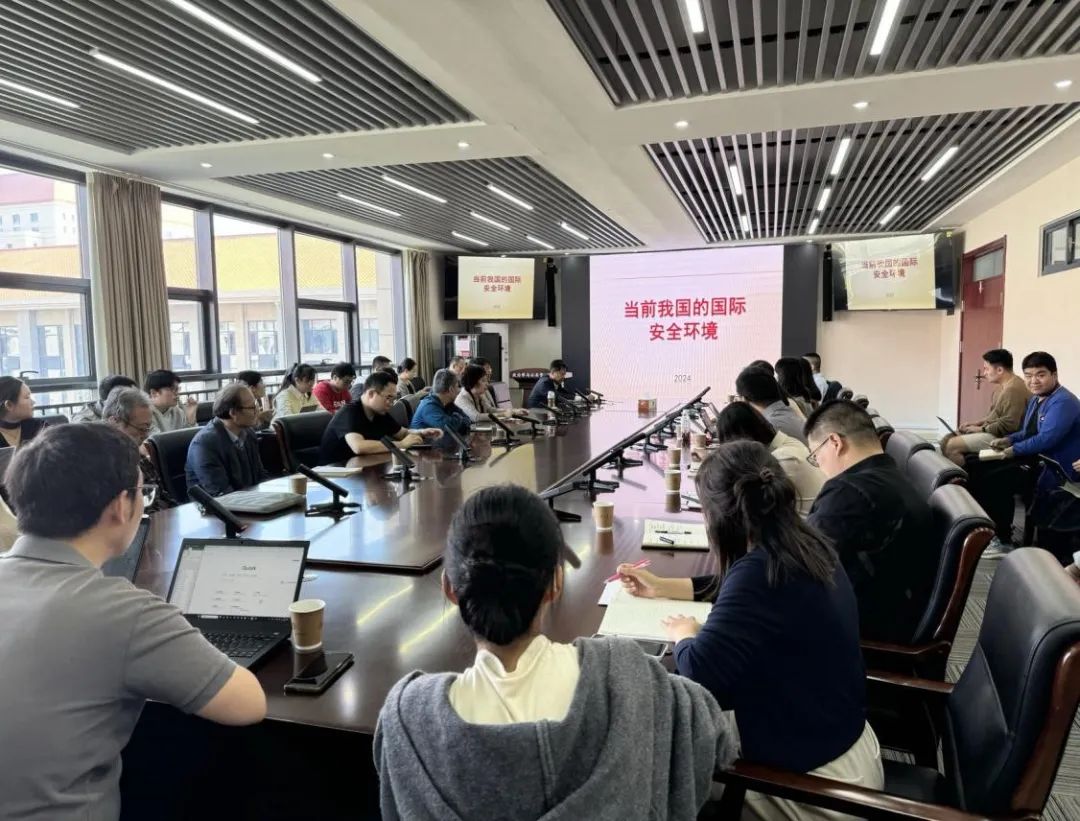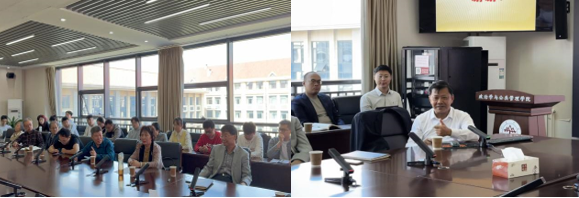On the morning of October 9th, the 16th lecture of the Cooperation and Development series, jointly hosted by the School of Politics and Public Administration of Shandong University, the Shanghai Cooperation Organization Institute of Shandong University, the Institute for Public Safety Research of Shandong University, and the China-SCO Business and Trade Institute, was successfully held in the meeting room on the fourth floor of the South Building of Huagangyuan. The theme of this lecture was "China's Current International Security Environment," presented by Professor Ji Zhiye, former Dean and Director of the Academic Committee of the China Institutes for Contemporary International Relations. Professor Sheng Li, a distinguished professor at the School of Politics and Public Administration of Shandong University and Executive Dean of the Shanghai Cooperation Organization Institute, presided over the lecture, with participation from faculty and students of the School of Politics and Public Administration.

At the beginning of the lecture, Professor Ji Zhiye conducted an in-depth analysis of the severe international security situation facing China, including global economic fluctuations, changes in the international landscape, and the resurgence of nationalism, and highlighted the major challenges China faces in managing its peripheral diplomacy. Subsequently, Professor Ji assessed the power dynamics among major countries and the international situation, pointing out that the international situation has not yet escalated to the point of direct conflict for China. Through abundant cases and data, Professor Ji analyzed the current international security situation, characteristics of the peripheral security environment, and the state of the international security environment. He emphasized that China should adhere to the path of Chinese-style modernization, confront current international security challenges by strengthening the modernization of the national security system and capabilities, and cultivate and adhere to an ideological, theoretical, and policy system that aligns with national conditions.

During the interactive Q&A session, faculty and students engaged in lively discussions on topics such as changes in the international situation, the management of relations among major countries, the enhancement of China's security awareness, and innovations in international relations theory. Professor Sheng Li expressed gratitude to Professor Ji Zhiye for his presence and insightful sharing, emphasizing the non-traditional security issues facing China, particularly economic and financial security in an open environment.
This lecture provided a platform for participants to gain a deeper understanding of China's security issues in the current international situation and the importance of China's peripheral diplomacy. The School of Politics and Public Administration of Shandong University remains committed to providing faculty and students with high-quality professional academic resources from both domestic and international sources and looks forward to their continued attention and active participation in the Cooperation and Development series lectures organized by the Shanghai Cooperation Organization Institute.
